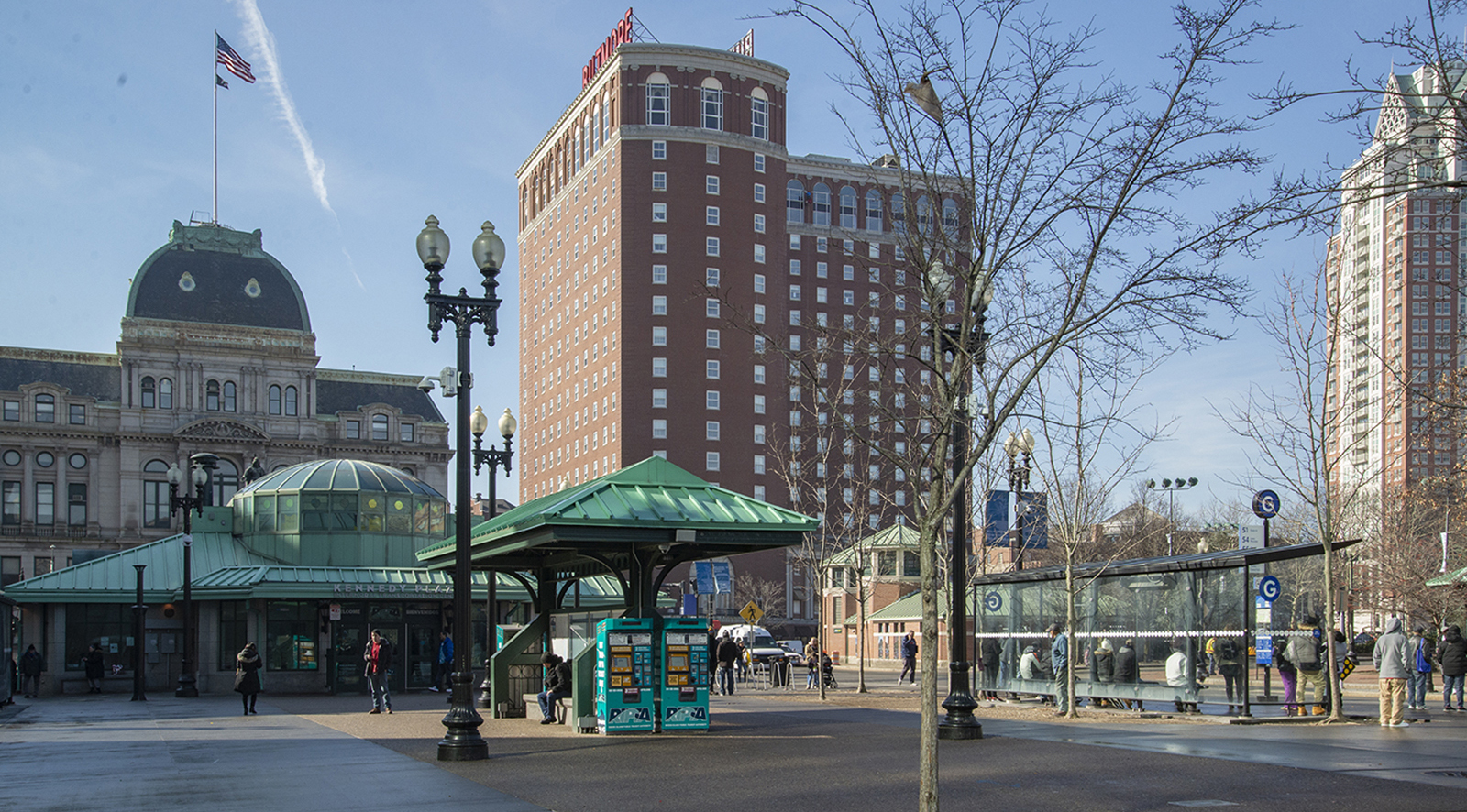R.I.’s Leadership Ignores Statewide Development Plan to Further Burden Taxpayers
March 15, 2016
Last December, at a Grow Smart Rhode Island transit conference, Gov. Gina Raimondo talked about the importance of developing around dense, transit-accessible hubs. Less than four months later, the governor is celebrating a project that will do just the opposite.
Last week, the Citizens Financial Group announced plans to build a corporate campus on open space in Johnston, off Greenville Avenue and outside Route 295. The proposed 420,000-square-foot facility is expected to house 3,200 current employees. The campus will reportedly feature an on-site cafeteria, fitness center and walking paths.
Rhode Island lawmakers couldn’t rush to TV cameras and microphones fast enough to pledge their support for the project and promise a quick permitting process. They glanced past the specifics — you know, the part about the state building infrastructure for a private development project that conflicts with the state guide plan.
A Rhode Island State Guide Plan policy overview conducted last August reads, in part: “The central premise of this Plan is that our current rate of land consumption is a major departure from our historic pattern of dense urban centers, and is not sustainable in the long and short term. It reflects the growing realization of the urgency for Rhode Island to plan, develop, and conserve more sustainably as our very small State adjusts to the pace of the dynamic Northeast urbanized corridor and its strategic position between the regional hubs of New York City and Boston.”
Developing this guide for state development appears to have been a waste of time, as Rhode Island continues its tradition of clear-cutting forests and paving over farmland, wetlands and fields to put up parking lots.
This Citizens Bank project also will require some financial help, courtesy of taxpayers. Raimondo calls this a win for Rhode Island.
The Citizens Financial Group’s 2014 annual report noted that the company had $132.9 billion in total assets and $865 million in net income. Its stock price was $22.09 per share at the end of trading on March 14. Citizens is the 13th-largest bank in the United States.
The cash-strapped Rhode Island Department of Transportation (DOT), however, has agreed to pay half the cost to build new exit and entrance ramps onto Route 295 for a money-making bank that operates more than 1,200 branches in 11 states.
The town of Johnston also has offered the banking conglomerate tax breaks. The mayor has spun it as a “property tax stabilization agreement.”
Rhode Island lawmakers recently passed a controversial bill to toll truckers, arguing that the state needed this revenue to maintain and repair its roads and bridges. A month later, DOT agrees to pay $3 million to build a connection to a new banking hub.
Apparently, there wasn’t a suitable place in Rhode Island’s urban core — one that already had existing highway access, sewer service and transportation choices. Bank officials have said building new was cheaper than renovating the company’s existing office space in Cranston. Cheaper for whom?
Public funding doesn’t end with highway ramps, though. The Narragansett Bay Commission is expected to pay for the extension of its sewer line into the woods. Ratepayers will ultimately pay the cost, despite what many will say.
There’s no Rhode Island Public Transit Authority (RIPTA) bus route into the Johnston forest. Perhaps cash-strapped RIPTA will agree to pay half the cost to create one.
Keeping businesses and jobs in Rhode Island is obviously vitally important, but the Rhode Island-based company has admitted it had no intention of leaving the state. Rhode Island’s elected leaders, however, decided to negotiate against themselves rather than work with bank officials to find a site that is aligned with the statewide development plan and has existing infrastructure.
Instead of looking out for taxpayers and the public trust, the governor and Statehouse leadership are helping fund the desires of a big bank that, in August 2015, the Consumer Financial Protection Bureau and other federal regulators levied millions in fees against for failing to credit customers’ accounts the full amount of their deposits.
Regulators declared that, from 2008-2013, the bank’s actions resulted in consumers being shorted millions of dollars.
Seven years before that, in May 2008, the Citizens Financial Group failed to publicly announce that it was under investigation by the Securities and Exchange Commission for its involvement in the sub-prime mortgage crisis that devastated the U.S. housing market.
After last week’s staged show to announce the development of the new corporate campus concluded, Gov. Raimondo rushed before the TV cameras to say, “As I’ve said many times, first-class companies need first-class infrastructure.”
And Rhode Island’s taxpayers and the environment need a break.
Frank Carini is the editor of ecoRI News.
Categories
Join the Discussion
View CommentsRecent Comments
Leave a Reply
Your support keeps our reporters on the environmental beat.
Reader support is at the core of our nonprofit news model. Together, we can keep the environment in the headlines.
We use cookies to improve your experience and deliver personalized content. View Cookie Settings




I’m so glad you called attention to this outrage. No net benefit for RI jobs but natural areas squandered, less taxes from a big bank, transit undermined, more runoff from pavement, taxpayers and ratepayers out multidollars, and a new highway interchange inducing even more ugly sprawl. That the state leaders applaud this almost makes one want to give up on RI. Further, when I called attention to this at the Environment Council Roundtable with RIDOT, the RIDOT Deputy Director indicated there may be no public review of the new interchange, no TIP amendment, and no NEPA environmental assessment needed as they may be able to build the interchange with no Federal money. Still, I wonder if the Federal Highway Administration has real oversight on a proposed new interchange on an interstate highway. RIDOT also was not troubled by the land use implications, they said they were OK with a "balance" of supporting transit oriented development and suburban development.
Do we have any recourse??
THANKS. This is just the sort of thing that is called economic development in Rhode Island that simply transfers wealth for the people to the wealthy. As in all schemes that transfer wealth to the wealthy it violates democracy and has a very negative environmental impact. This one is as smart as building fossil fuel infrastructure to burn dinosaurs and make it as hot as it was when they walked the earth.
Here is the study and suggestions. I have never seen a copy of this before. http://www.planning.ri.gov/documents/sustainable/SGP_Framework_Final_For_Web.pdf
Bravo.
classic example of corporate welfare.